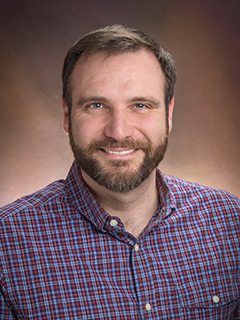HOW CAN WE HELP YOU? Call 1-800-TRY-CHOP
De Raedt Laboratory
Pediatric high-grade glioma (pHGG) is a devastating disease with a median survival of approximately 12 months. Intriguingly, in pediatric high-grade glioma, mutations in the epigenetic machinery often co-occur with RAS pathway mutations. The De Raedt Lab’s goal is to study and understand the RAS pathway and to identify and understand how epigenetic mutations cooperate with RAS pathway activation. The lab also has an interest in developing novel therapeutic approaches, including immunotherapy.
The De Raedt Lab is investigating functional validation and identification of new epigenetic drivers. In the current era of next generation sequencing, identifying potential new drivers for cancer is no longer a bottleneck. A major challenge, however, remains the rapid functional validation of the vast number of genes that were found mutated or lost. With regards to functional validation, in vivo modeling remains a state-of-the-art discovery tool.
The lab is exploring new therapies for central nervous system tumors (CNS) tumors, with the successful application of immunotherapy representing one of the most promising developments in recent years. The lab anticipates developing relevant mouse models that will be ideal for testing immunotherapy in CNS tumors.
Although RAS signaling cascades have been well studied, a complete picture of which transcription factors are downstream of RAS and which direct target genes are important to drive transformation in brain tumors is currently lacking. The De Raedt lab team aims to gain a profound understanding of the importance of these downstream factors, which will provide unprecedented mechanistic insight into how the RAS transcriptional program is driven and how it can be exploited for the development of therapies.

Thomas De Raedt, PhD
Research Scientist
Dr. De Raedt researches pediatric high grade glioma development and aims to understand the involvement of crucial pathways. He investigates pathway interaction, and explores ways to develop therapies through analyzing human tumors, performing cellular studies, and developing accurate mouse models. This allows Dr. De Raedt and his team to perform novel pre-clinical studies that can lead to clinical trials.